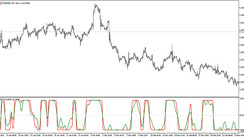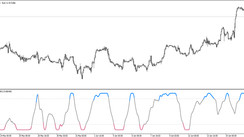Forex Spread Betting is the process of speculation over the direction in which a particular currency pair will move within a particular timeframe. The difference between the bid price and the ask price is known as the spread.
Traders make bets based on how they feel the price will adjust. There are 2 possible bets that traders can take – the bet that the price will be lower than the bid price or the bet that the currency pair price will be higher than the ask price.
One of the attractive features of forex spread betting is the ability to use leverage. Leverage allows traders to place bets using “borrowed funds” and to be able to participate in trades with small capital outlays.
At the same time, the trader gets the opportunity to make gains that are several multiples of the capital invested. On the other hand, it is possible to make losses that are multiples of the invested capital.
It must be noted that traders involved in forex spread betting do not actually own any of the underlying currencies involved in the trade. They simply speculate on the price movement of the underlying currencies. In some countries such as the UK, forex spread betting is considered as gambling.
Due to this stance, forex spread betting in the UK does not attract stamp duty or capital gains tax. This means that any capital gains or profits made by the trader belong fully to him or her. Spread betting is prohibited in the United States of America.
Since the spread betting broker earns from the spread, there is no need to pay commissions on transactions. This is another feature which makes forex spread betting appealing to investors. While spread betting is similar to forex trading, forex trading is considered to be speculative investment whereas forex spread betting is viewed as gambling.





